Data Science for Transport Justice
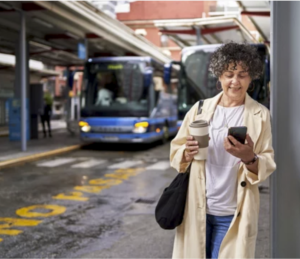
This project aims to leverage data science tools to explore whether big data on people’s mobility behavior can be used to identify people and population segments at risk of mobility problems. The underlying assumption of the project is that a sophisticated, data-driven, analysis of people’s mobility behaviors can provide information on the ease or difficulty with which they can travel. The project will be conducted in cooperation with , a leading data analytics company. Habidatum will provide the research team with processed and anonymized GPS data collected from multiple third-party apps, thereby providing the perfect data infrastructure for developing and testing the proposed approach.
The project is financed by the Israel Ministry of Science & Technology. Karel Martens will be leading this project, jointly with co-investigator prof. Avigdor Gal from the Technion’s Faculty of Data and Decision Science. Early career researchers interested to pursue a PhD are invited to apply to join this project.
Measuring Travel Problems
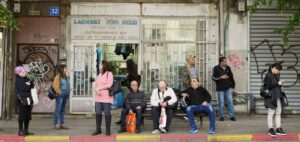
For decades, transport research has collected data on people’s travel behavior and processed these data using travel demand models to obtain estimates of future ‘transport problems’. This project seeks to provide an alternative to this ’roundabout’ approach by directly asking people to report
on their travel problems. Drawing inspiration from the well-developed field of Health Status Research the project seeks to develop survey tools to systematically measure and estimate a population’s mobility status: a general, evidence-based, description of the ease or difficulty with which people can reach desired destinations. If successful, the project will not only deliver powerful tools to assess a population’s mobility status; it may also provide a new evidence base for transport planning and policy.
The project is currently financed by the Israeli Smart Transportation Research Center, after an initial smaller grant from the Institute for Sensible Transport. The current phase of the project is being conducted in partnership with Transport Today & Tomorrow, Israel’s leading non-governmental organization promoting sustainable transport in Israel. Former lab members Gali Freund, John Pritchard and Matan Singer have all contributed to this, resulting in a master thesis and publications in Travel Behaviour and Society and Transportation Research Part D.
Fairness of Transport Systems
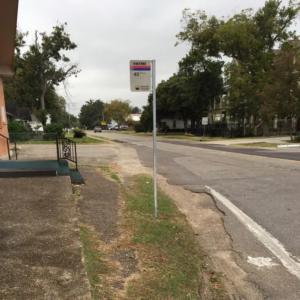
Partly funded by the Israel Science Foundation, this project examines the fairness of the transport systems. The objective is to systematically analyze who is enjoying the benefits generated by the extensive transport networks built over decades of massive investments in infrastructure – and who is missing out on these fruits. The first series of analyses has focused on the 49 largest US metropolitan areas, drawing on accessibility data generously provided by the Accessibility Observatory. The analyses compare accessibility patterns within and across the metropolitan areas, along dimensions of income, car-ownership and ethnicity.
The project also explores what can explain the vast differences between the metros, by probing into the impacts of factors like housing density, polycentricity, poverty levels, and road congestion. Beyond academic publications, the project has produced the Accessibility Sufficiency Dashboard. This interactive web interface allows researchers to explore the (un)fairness of accessibility patterns in US metropolitan areas in further detail. Lab researchers involved in the project include alumni: Matan Singer, Aviv Lee Cohen Zada, John Pritchard and Anna Zanchetta.
Transport Justice in Sub-Saharan Africa
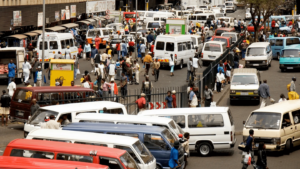 Partly funded by the Volvo Research and Educational Foundations, the aim of this initiative is to gain a deeper understanding of the changing landscape of transport (in)justice in African cities. In particular, the research strand seeks to understand how (proposed) changes in the transport systems and land use patterns may degrade or enhance the ability of disadvantaged groups to access daily needs.
Partly funded by the Volvo Research and Educational Foundations, the aim of this initiative is to gain a deeper understanding of the changing landscape of transport (in)justice in African cities. In particular, the research strand seeks to understand how (proposed) changes in the transport systems and land use patterns may degrade or enhance the ability of disadvantaged groups to access daily needs.
Within the framework of this new initiative, Wambũi Kariuki is studying how informal public transport, the backbone of motorized transport in Sub-Saharan Africa, can be made relevant for both the urban poor and the emerging middle classes, using the theoretical concept of dignity. Chebe Polycap, who will soon be joining the Fair Transport Lab, will analyze how new transport investments are affecting walking patterns in African cities, with particular attention for the urban poor. Jointly with researchers from Rwanda, Malawi and South-Africa, Karel Martens is exploring how the theoretical concepts developed in his book can be applied to the Sub-Saharan context.
Mobility Beyond Middle-Income and Middle-Age
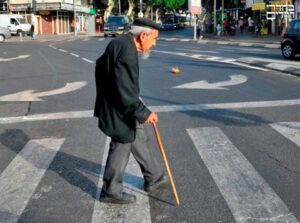
The aim of this research strand is to understand and analyze the mobility challenges faced by groups that tend to receive limited attention in transport policies and investments. Avital Arbel is studying how teenagers living in ex-urbs and rural communities manage their mobility, exploring how they conceptualize a fair transport system in their localities. Omer Dillian is developing an approach to understand how people may lose existing, and acquire new, mobility skills at older age. Matan Singer was studying the travel behavior of individuals with cognitive impairments and their barriers to using public transport, developing the concept of ‘cognitive mainstreaming’ and policy-relevant guidelines to address the mobility needs of people with cognitive impairments.
Emerging Transport Modes for Transport Justice?
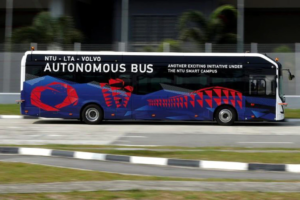
This research project explores which population groups might be served by emerging transport modes – and which groups may have little to gain from the buzz around new trends and innovations. Emily Soh studied the promise of autonomous vehicles (AVs). Using the Ethical Delphi method, she has analyzed to what extent AV professionals in Israel and Singapore relate to key public values in their work, such as equity, democracy and privacy. Her published work can be found on the lab’s website.
Avi Parsha has focused on cycling, which is receiving increasing attention and funding in cities around the world. He has explored the relationship between social identity and cycling among women in Tel Aviv, finding that the hip and young image of the typical cyclist creates a barrier to cycling for underprivileged groups. He published his findings not only in his master thesis titled Social identity and cycling among women: The case of Tel Aviv-Jaffa, but also in a paper published in Transportation Research Part F: Traffic Psychology and Behaviour.
Changing Policies to Promote Transport Justice

Policies always affect different people in different ways. The purpose of this project is to critically scrutinize transport policies through a transport justice lens. Within this context, Ya’ara Tsairi is examining employer mobility policies. These policies strongly shape employees’ travel behavior. Moreover, these policies tend to prefer certain transport modes and certain employees over others. This research explores the socially desired role of employer policies towards employee transport, drawing on notions of corporate social responsibility, sustainability, and transport justice.

